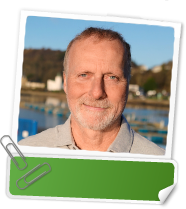What is the difference between unconscious beliefs and unconscious patterns?
What is the difference between unconscious beliefs and unconscious patterns? Is there a difference between breaking a bad habit and building a belief in your ability to express an opinion?
This question was submitted by 'Seth'

Mark says...
Hello Seth, this is a very interesting question.
An unconscious belief is an unquestioned subjective assumption we hold about an aspect of the nature of reality. Beliefs can be easily engineered into people through intentional or unintentional techniques of persuasion and through experience generally. As we see if we watch the news, beliefs are powerful and, when unquestioned in oneself, can lead to all kinds of tyranny, radicalism, and victimization. So-called radicalization or 'brainwashing' is the inculcation of beliefs into people that then work within the person, usually below the surface of conscious analysis.
We are all, to some extent, brainwashed and conditioned by our environments. Someone with very low self-esteem, for example, will hold unconscious beliefs about themselves and other people that determine their feelings, reactions, and expectations in a prejudiced way. When we understand how beliefs work, suddenly our own and other people's behaviour becomes more understandable.
Intense belief in itself tells us little about the veracity of what is being believed. We see this in religious or political wars, for example, in which both sides may believe just as strongly as the other in opposing ideologies. Belief, however intense, is not a gauge for truth in and of itself and not necessarily aligned to a person's IQ. When an idea becomes more important than people, we can bet that a belief has become a tyranny. "We are God's/Allah's chosen people, therefore all unbelievers must die" is an example of an engineered idea having become more compelling to someone than real people.
If someone holds a really strong belief, a question to ask themselves might be: would I hold this belief had I been born into and brought up in a very different culture?
A belief can be part of an unconscious pattern in that it can make us behave and feel certain things without conscious questioning. This is as it should be for much of life so we can be efficient. I don't want to be questioning my belief in the hardness of solid objects when I am driving my car, for instance. But it causes us problems when the beliefs are destructive or overly limiting.
An unconscious pattern can include beliefs but also a physical response, as when we unconsciously produce saliva just to mere words such as 'chocolate' or 'bacon burger'. Posttraumatic stress disorder [PTSD], which can fuel 'flashbacks', is a condition that is driven by unconscious patterns that may or may not contain beliefs as part of those patterns. So, someone may say, for example, "I know (believe) I am safe, but I keep feeling terrified when x happens."
A bad habit can be broken through both changing one's beliefs and unconscious patterns and so too can self-confidence to express an opinion be built. Changing unconscious patterns, as with hypnosis, can change limiting beliefs - not necessarily by implanting a new belief, but by helping someone see wider context so that the limitations of an old belief can more easily be abandoned.
Someone is more likely to believe they are as secure and safe as they really are once you have lifted the pattern of their phobia or PTSD. It's sometimes assumed that in order to change emotional responses you need to change thoughts or beliefs first. But in reality, because emotions emerge quicker than the speed of thought, it's easier, if you know how, to change unconscious patterned responses so that beliefs can then change.
As an aside, understanding the nature of beliefs and unconscious patterns and how one's own beliefs may have been formed is, I believe, a prerequisite to self-development. Although when people profess to being interested in self-development (and this is just my experience of some such people), they may feel this part lacks enough excitement or immediate emotional feedback.
Perhaps for human beings to evolve, the understanding of the nature of beliefs and unconscious patterns needs to become common knowledge so that more people can become 'inoculated' from some of the terrible excesses and tyrannies caused by some of the more extreme kinds of belief. Perhaps this has to happen.
All my best,
Mark


